Moose/Elk Alces alces


The Moose (American), also called Elk in Eurasia, are the largest species of deer, with males reaching some 2 metres (6 feet) at the shoulder.
They are native to tundra and taiga of northern Eurasia and North America.
(The North American term "Elk" refers to the Wapiti, another large deer. The scientific name
Alces comes from the European name.)



Only the males (bulls) grow antlers, which are palmated (like open hands) and can reach some 2 metres across.
The antlers are shed and re-grown each year, initially having a "velvet" covering to protect blood vessels
before shedding the velvet and becoming bone-like. Antlers can weigh up to 20kg.



Bull above with velvet antlers. Forest dwellers, they live today in northern Scandinavia, Eastern Europe and Russia as well as Canada and northern USA.
Until the 9th or 10th century they also lived in Britain but became extinct mainly through hunting and deforestation.



Bull with bone antlers. Moose are generally solitary rather than herd animals and bulls fight and mate in autumn,
shedding their antlers to re-grow the following year.



The females (cows) do not grow antlers.



Moose (Elk) can swim and can reach land speeds of some 60 km/h.
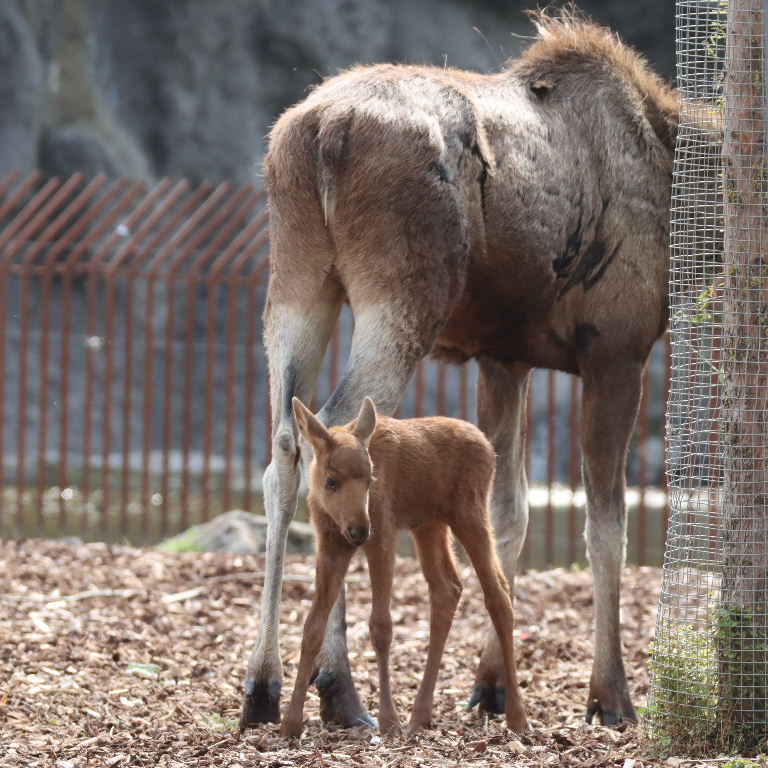
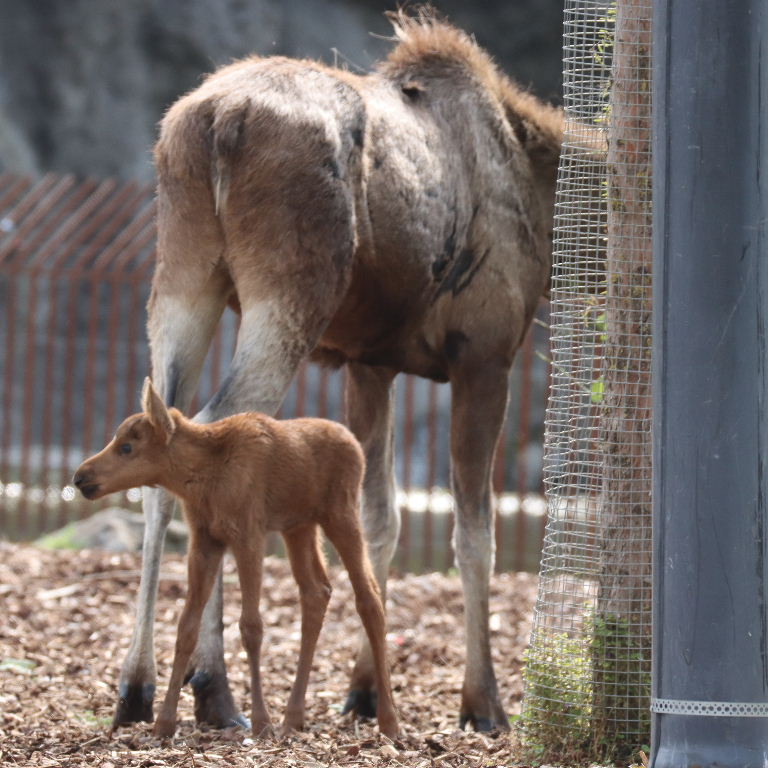
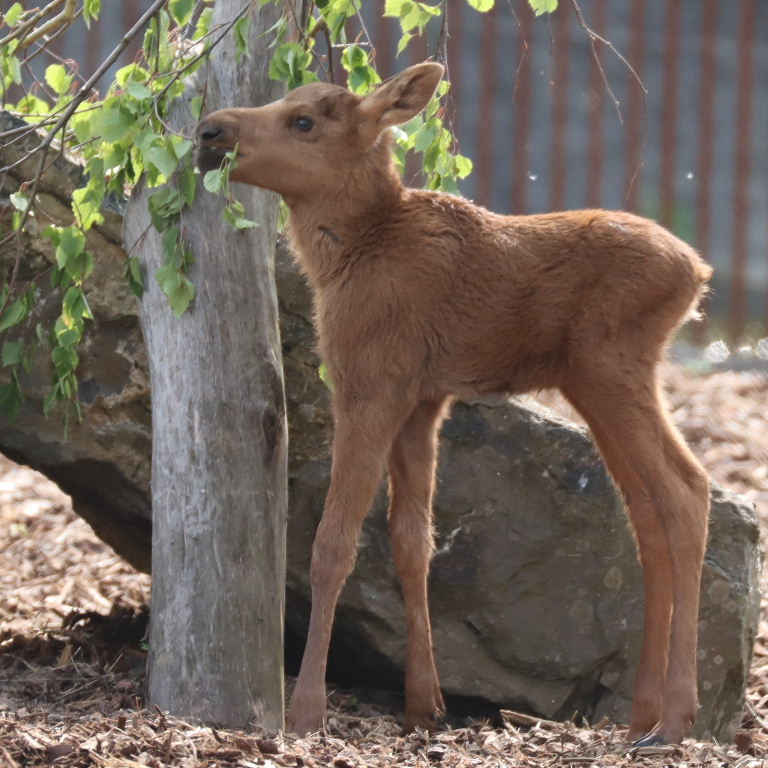
A Moose with a calf some 10 days old.
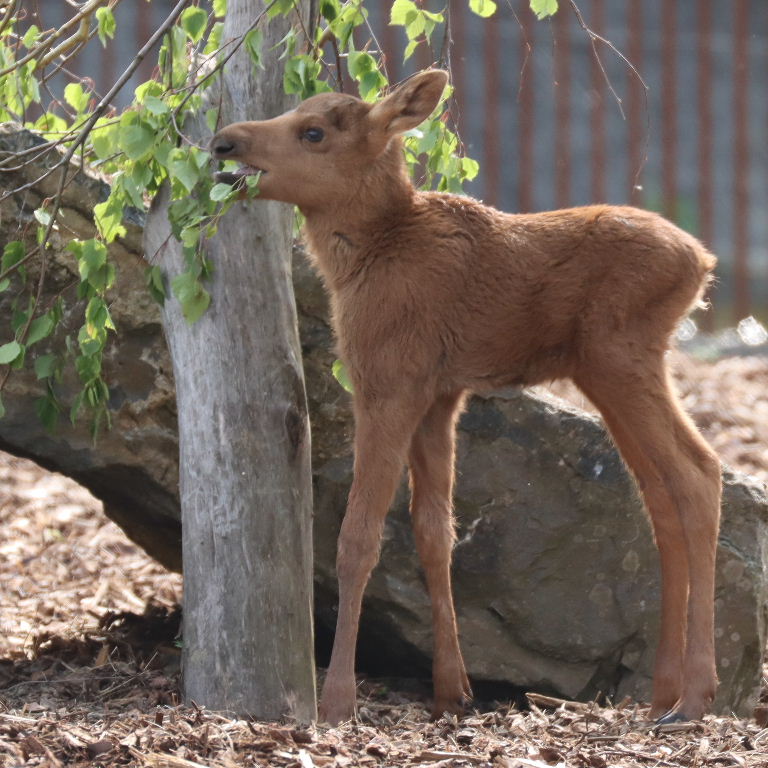
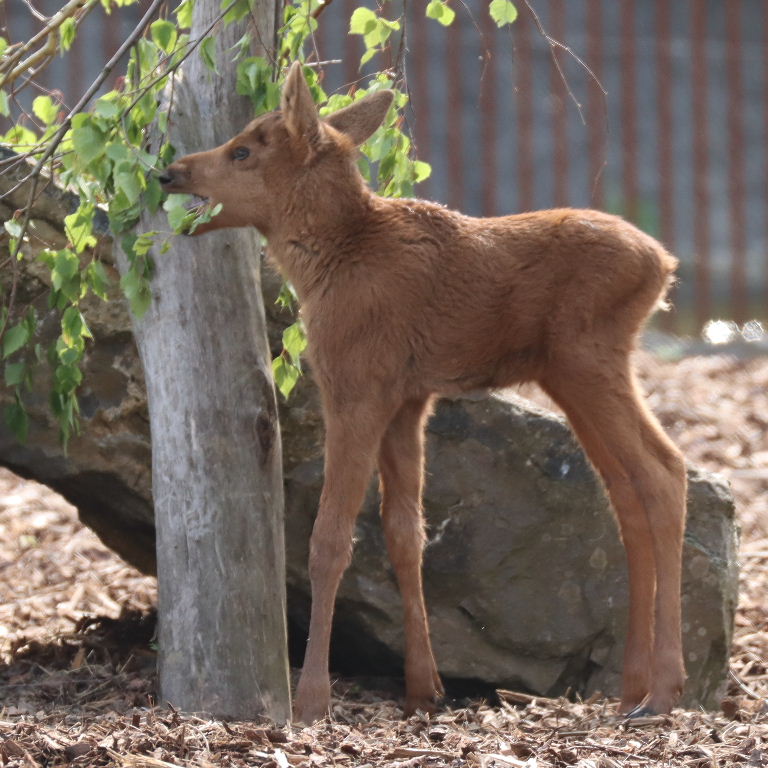
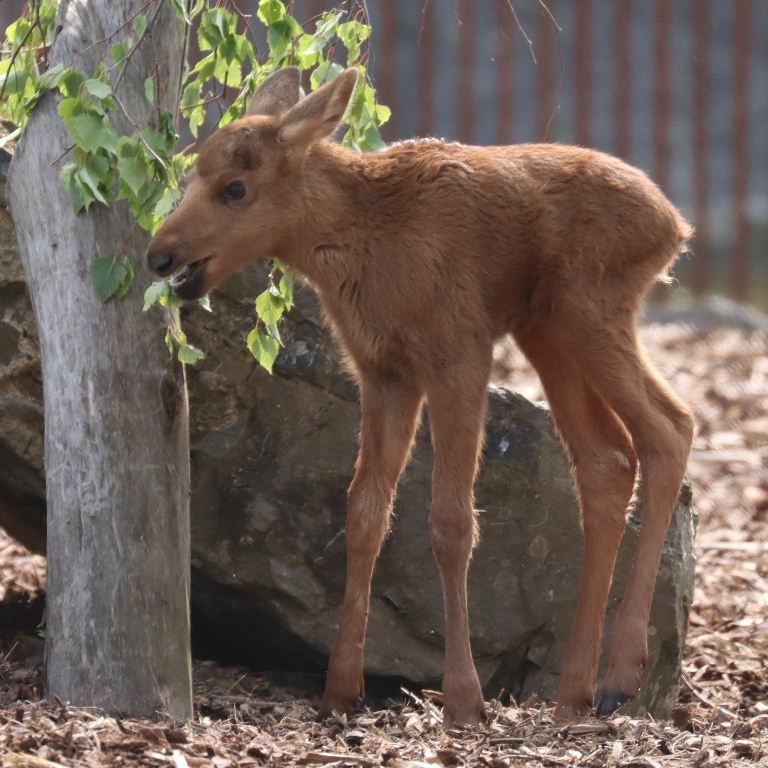
10 days seems too young to be eating leaves but the calf has teeth.

